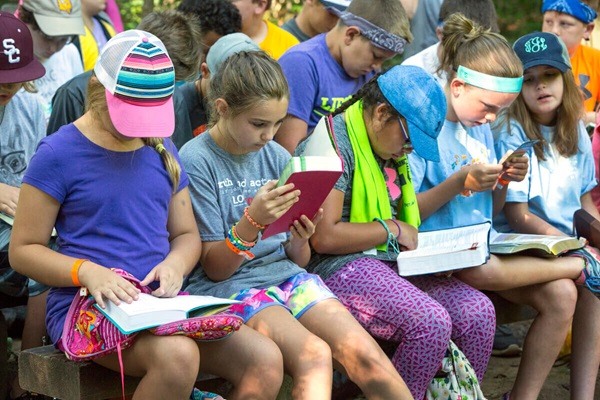The long period between Pentecost Sunday and the start of Advent, encompassing most of the summer and fall months, is known as Ordinary Time.
Despite the name, this liturgical season is anything but ordinary, both in the life of the church and in the lives of congregants. Children are out of school for a significant portion of the season, families go on vacation, and youth attend mission trips. Major holidays such as the Fourth of July, Labor Day, Veterans Day, Halloween and Thanksgiving always take place during Ordinary Time.
While many congregations may be tempted to see Ordinary Time as downtime due to a drop in church attendance, it can also be a season of spiritual growth, deep engagement and vibrant fellowship. Here are some tips and ideas to help you make Ordinary Time extraordinary.
Spiritual Growth
In the early church, the period of Ordinary Time after Pentecost was dedicated to making and nurturing new disciples. With some church members—such as students and teachers—having more free time or flexible schedules in the summer, this can be an ideal season to start a new small group or Bible study. There are many studies and curricula available for Sunday school or small groups at Cokesbury or Amplify Media.
You might also use this time to get away for a spiritual retreat or immersion experience. Emmaus Ministries offers spiritual formation opportunities for youth and adults of all ages.
Mission Trips
Many churches also use the summer months of Ordinary Time for mission trips. For youth and young adults who are out of school, it can be the perfect opportunity to travel, reconnect with each other, and serve communities in need. Mission trips can also be a meaningful opportunity for older adults looking for new ways to serve God and their neighbors. Religion and Race offers suggestions for planning a mission trip the right way.
Serve the Local Community
You don’t have to travel abroad or across the country to make a difference in people’s lives. There are ample opportunities for service right in your local town or community and pre-existing programs in which your congregation can get involved: soup kitchens, food pantries, meal deliveries, volunteering at local hospitals or nursing homes, and animal welfare organizations such as the Humane Society.
Your church might also decide to organize its own summertime outreach programs, such as an art camp for youth or weekly communal meals for the homeless.
Have Fun
Of course, all work and no play makes Ordinary Time a dull season. Take advantage of the warmer weather and increased free time for children and families by hosting fun activities. These don’t need to be huge or elaborate. It could be a potluck picnic in the park or a free movie night in the church parking lot. It might be a family game night or a youth lock-in at the church. You could also organize an outing to an event already happening in the community, such as a ballgame, play, concert or neighborhood party.
Conclusion
Ordinary Time can be extraordinary when congregations use it to deepen their relationship with God, serve others in need, and strengthen their sense of community through shared ministries and fellowship. Don’t let this time go to waste.
This content was produced by ResourceUMC on July 11, 2025. Philip J. Brooks is a writer and content developer at United Methodist Communications. Contact him by email.

